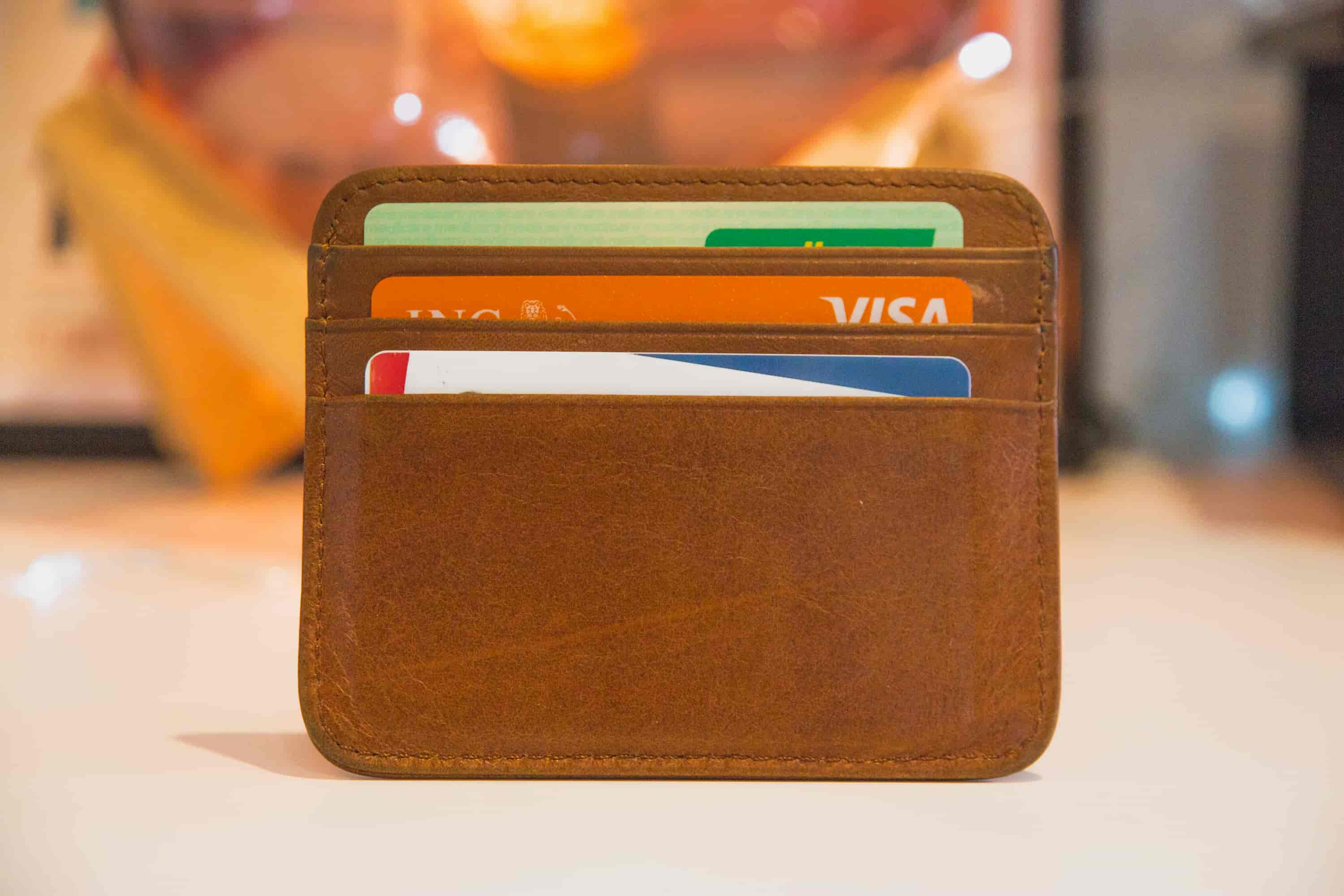

Finance
How To Build Credit For Teenager
Modified: January 15, 2024
Learn how to build credit for teenagers and set them up for financial success. Find expert tips and advice on managing finances and establishing a solid credit history.
(Many of the links in this article redirect to a specific reviewed product. Your purchase of these products through affiliate links helps to generate commission for LiveWell, at no extra cost. Learn more)
Table of Contents
- Introduction
- Why is building credit important for teenagers?
- Understanding the Basics of Credit
- Steps to Build Credit as a Teenager
- Opening a Checking or Savings Account
- Becoming an Authorized User on a Parent’s Credit Card
- Applying for a Secured Credit Card
- Making Small Purchases and Paying Off the Balance in Full
- Building a Positive Payment History
- Monitoring Credit Report and Score
- Graduating to an Unsecured Credit Card
- Seeking Financial Education and Guidance
- Conclusion
Introduction
Building credit is an essential part of financial stability and responsibility. While it may seem like something only adults need to worry about, establishing credit early on can provide teenagers with a strong foundation for their financial future. By starting to build credit at a young age, teenagers can develop good financial habits, learn about the importance of credit, and set themselves up for a successful financial journey.
But why is building credit important for teenagers? The answer lies in the fact that credit plays a significant role in various aspects of life. Whether it’s applying for a loan, renting an apartment, or even getting a job, having a good credit history can open doors and provide opportunities. By building credit as a teenager, young individuals can establish a positive credit history and demonstrate their financial responsibility to lenders and potential employers.
Understanding the basics of credit is crucial for teenagers embarking on the journey of building credit. Credit refers to the ability to borrow money or access goods and services based on the trust that payment will be made in the future. A credit score is a numerical representation of an individual’s creditworthiness, which is determined by factors such as payment history, credit utilization, length of credit history, and types of credit used. A higher credit score indicates a lower risk to lenders and can result in lower interest rates and better credit opportunities.
Why is building credit important for teenagers?
Building credit as a teenager may not be a top priority, but it can significantly impact their financial future. Here are a few reasons why building credit is important for teenagers:
- Establishing a Positive Credit History: Building credit early allows teenagers to establish a positive credit history. Lenders and creditors often look at credit history to determine creditworthiness, and having a solid credit history can increase the chances of obtaining credit in the future.
- Access to Financial Opportunities: Having a good credit score provides teenagers with access to financial opportunities such as loans, credit cards, and even renting an apartment. It also enables them to secure these opportunities at more favorable terms, including lower interest rates and better credit limits.
- Developing Financial Responsibility: Building credit as a teenager teaches valuable lessons in financial responsibility. It requires managing credit, making payments on time, and keeping credit utilization low. These habits cultivated at an early age can set the foundation for a lifetime of responsible financial management.
- Preparing for Major Life Events: As teenagers transition into adulthood, they will likely encounter major life events such as buying a car or a home. Building credit early ensures they are well-prepared for these milestones and can secure the necessary financing.
- Building Trust with Lenders: Building credit early allows teenagers to establish a relationship and build trust with lenders. This can be beneficial when they need larger credit limits or more substantial loans in the future.
While building credit as a teenager may seem like a challenge, the long-term benefits far outweigh the initial effort. By starting early, teenagers can lay the groundwork for a strong financial future and set themselves up for success in adulthood.
Understanding the Basics of Credit
Before diving into the process of building credit as a teenager, it is essential to understand the basics of credit. Credit is a system that allows individuals to borrow money or access goods and services with the understanding that the borrowed amount will be repaid, usually with interest, over a specified period of time.
One of the key elements of credit is the credit score. A credit score is a numerical representation of an individual’s creditworthiness, ranging from 300 to 850 in most scoring models. The score is calculated based on various factors, including payment history, credit utilization, length of credit history, and types of credit used.
Payment history plays a crucial role in determining creditworthiness. Lenders want to see a consistent record of on-time payments for credit obligations such as loans and credit cards. Late payments or defaults can significantly impact credit scores and make it harder to obtain credit in the future.
Credit utilization refers to the amount of available credit that an individual is using. Keeping credit utilization low, ideally below 30% of the total available credit, is considered favorable for credit scores. High credit utilization can suggest financial dependency or an increased risk of default.
The length of credit history is another factor considered by credit scoring models. Generally, a longer credit history demonstrates a track record of responsible credit management. For teenagers just starting to build credit, this aspect will naturally take time to develop.
Lastly, the types of credit used also influence credit scores. Having a diverse range of credit accounts, such as credit cards, loans, or a mortgage, can positively impact creditworthiness, provided they are managed responsibly.
Understanding these fundamental aspects of credit is crucial for teenagers who are starting to build their credit. By grasping the fundamentals, they can make informed decisions, develop good credit habits, and lay a strong foundation for their financial future.
Steps to Build Credit as a Teenager
Building credit as a teenager may seem like a daunting task, but by following a few simple steps, teenagers can start establishing a positive credit history. Here are the key steps to build credit as a teenager:
- Opening a checking or savings account: The first step in building credit is to open a checking or savings account. While this doesn’t directly contribute to building credit, it establishes a relationship with a financial institution and demonstrates financial responsibility.
- Becoming an authorized user on a parent’s credit card: With permission from their parents, teenagers can become authorized users on a parent’s credit card. By doing so, they can benefit from the positive credit history associated with the card and start building their own credit history.
- Applying for a secured credit card: Secured credit cards are designed for individuals with little or no credit history. They require a security deposit, which becomes the credit limit. Using a secured credit card responsibly and making payments on time helps teenagers build credit.
- Making small purchases and paying off the balance in full: To build credit effectively, teenagers should make small purchases with their credit card and pay off the balance in full each month. This demonstrates responsible credit management and avoids accruing unnecessary interest charges.
- Building a positive payment history: Consistently making on-time payments is essential for building credit. Late payments can have a negative impact on credit scores, so it’s crucial for teenagers to manage their credit responsibly and pay their bills promptly.
- Monitoring credit report and score: It’s advisable for teenagers to monitor their credit report and score regularly. This allows them to identify any errors or discrepancies and take necessary actions to rectify them. Many online platforms provide free access to credit reports and scores.
- Graduating to an unsecured credit card: After demonstrating responsible credit use, teenagers can graduate to an unsecured credit card without a security deposit. Unsecured credit cards often offer better rewards and benefits, but it’s important to choose one with reasonable terms and fees.
- Seeking financial education and guidance: Financial literacy is key to building and maintaining good credit. Teenagers can seek education and guidance from parents, mentors, or reputable financial resources to learn about budgeting, credit management, and other important financial skills.
Building credit as a teenager requires patience, discipline, and responsible credit management. By following these steps and cultivating healthy financial habits, teenagers can establish a strong credit foundation that will benefit them for years to come.
Opening a Checking or Savings Account
The first step in building credit as a teenager is to open a checking or savings account. While this may not directly contribute to building credit, it is a crucial foundation for establishing a financial relationship with a bank or credit union.
Opening a checking or savings account provides teenagers with a safe place to deposit their money and start managing their finances. It allows them to develop good money management habits by tracking their spending, saving for future goals, and understanding the importance of budgeting.
In addition to the practical benefits, having a checking or savings account helps teenagers build trust with banks and financial institutions. This can be advantageous when they later apply for credit cards, loans, or other financial products.
When opening a checking or savings account as a teenager, it’s important to consider a few key factors:
- Choose the right account: Look for a checking or savings account that is specifically designed for teenagers. Many banks offer accounts specifically tailored to young individuals, with features like no monthly fees, low minimum balances, and parental monitoring options.
- Get parental involvement: Since teenagers may need a parent or guardian to co-sign or provide consent for opening an account, it’s important to involve them in the process. Parents can guide teenagers in choosing a suitable account and provide oversight to ensure responsible financial management.
- Understand the account terms: Before opening an account, teenagers should carefully review the terms and conditions. Consider factors such as maintenance fees, transaction limits, ATM access, online banking options, and any special benefits or rewards offered.
- Start building a relationship: Once the account is open, teenagers should strive to establish a positive relationship with the bank or credit union. Regularly monitoring account activity, practicing responsible financial habits, and maintaining regular communication can help build trust and set a strong foundation for future credit opportunities.
Opening a checking or savings account is an essential first step in the journey of building credit as a teenager. It provides a practical and educational platform for managing money and establishes a relationship with a financial institution, setting the stage for responsible credit use in the future.
Becoming an Authorized User on a Parent’s Credit Card
Becoming an authorized user on a parent’s credit card is an effective way for teenagers to start building their credit history. By being added as an authorized user, teenagers can benefit from the positive credit history associated with their parent’s card.
When a teenager becomes an authorized user on a parent’s credit card, the account activity is often reported on their credit report. This means that the responsible use of the credit card, including timely payments and low credit utilization, can have a positive impact on the teenager’s credit history and credit score.
However, it’s important to note that not all credit card issuers report authorized user information to credit bureaus. Therefore, it’s advisable to confirm with the credit card issuer whether they report authorized user activity before pursuing this option.
When considering becoming an authorized user on a parent’s credit card, here are a few key points to keep in mind:
- Trust and Communication: Parents and teenagers must have open and honest communication about financial responsibility. Both parties should be transparent about spending limits, payment expectations, and the purpose behind adding the teenager as an authorized user.
- Responsible Credit Card Use: As an authorized user, teenagers need to understand the importance of responsible credit card use. This includes making payments on time, keeping the credit card utilization low, and using the card for necessary expenses only.
- Regular Monitoring: Teenagers should actively monitor their credit report to ensure that the authorized user account is being reported accurately. This allows them to identify any errors or discrepancies and take necessary action to rectify them.
- Parental Supervision: Parents should actively monitor the credit card account and set appropriate spending limits for their teenager. Regularly reviewing statements and discussing financial responsibility can help ensure that both parties are on the same page.
- Set Future Boundaries: Becoming an authorized user on a parent’s credit card is a stepping stone towards building an independent credit history. It’s important for parents and teenagers to establish boundaries and discuss a plan for when the teenager is ready to manage their own credit responsibly.
Becoming an authorized user on a parent’s credit card can provide teenagers with a head start in building their credit history. By leveraging their parent’s positive credit history, teenagers can establish a foundation of responsible credit use and set themselves up for future credit opportunities.
Applying for a Secured Credit Card
Another effective step in building credit as a teenager is applying for a secured credit card. Secured credit cards are designed for individuals with limited or no credit history, making them an ideal option for teenagers who are just starting their credit journey.
Unlike traditional credit cards, secured credit cards require a cash deposit as collateral, which serves as the credit limit. The deposit acts as security for the credit card issuer, ensuring that they have a way to recoup any outstanding balances if the cardholder fails to make payments.
Applying for a secured credit card offers several benefits for teenagers:
- Builds Credit History: Using a secured credit card responsibly and making timely payments helps teenagers establish a positive credit history. The credit card activity is typically reported to the credit bureaus, which contributes to building a credit score.
- Teaches Responsible Credit Management: Having a secured credit card provides teenagers with an opportunity to learn responsible credit management. They can practice budgeting, make purchases within their means, and develop the habit of paying off the balance in full to avoid accruing interest charges.
- Gradual Increase in Credit Limit: Some secured credit card issuers offer the option to increase the credit limit over time, usually by adding additional deposits. This allows teenagers to gradually build their credit limit and creditworthiness.
- Transition to Unsecured Credit: Establishing a positive payment history with a secured credit card can help teenagers eventually qualify for an unsecured credit card, which doesn’t require a deposit. This transition indicates that they are ready to manage credit independently.
When applying for a secured credit card as a teenager, it’s important to consider a few key factors:
- Choose a Reputable Credit Card Issuer: Look for well-established and reputable credit card issuers that offer secured credit cards specifically geared towards teenagers or individuals with limited credit history.
- Review the Terms and Fees: Understand the terms and conditions of the secured credit card, including any fees associated with the card. Look for cards with reasonable annual fees, low interest rates, and no hidden charges.
- Practice Responsible Credit Use: Use the secured credit card responsibly by making small purchases and paying the balance in full each month. This demonstrates good credit management habits and helps build positive credit history.
- Monitor Credit Card Activity: Regularly monitor credit card statements to keep track of transactions and detect any unauthorized charges. This allows for prompt action in case of fraudulent activity and helps maintain good credit hygiene.
Applying for a secured credit card provides teenagers with a valuable tool for building credit and learning responsible credit management. By using it wisely and paying on time, teenagers can establish a positive credit history and gain the necessary experience to handle credit responsibly in the future.
Making Small Purchases and Paying Off the Balance in Full
One of the key steps in building credit as a teenager is making small purchases with credit cards and paying off the balance in full each month. This practice demonstrates responsible credit management and contributes to a positive credit history.
Here’s why making small purchases and paying off the balance in full is important:
- Establishes Responsible Credit Use: Making small purchases with a credit card allows teenagers to start building a credit history by demonstrating responsible credit use. It shows lenders that they can handle credit responsibly and make timely payments.
- Builds Positive Credit History: Regularly using a credit card and making payments on time contributes to building a positive credit history. This history will be reported to credit bureaus and will play a significant role in determining creditworthiness in the future.
- Keeps Balances Low: Making small purchases and paying off the balance in full helps keep credit card balances low. High credit utilization, which is the ratio of credit card balances to credit limits, can negatively impact credit scores. Keeping balances low demonstrates responsible credit management and can improve creditworthiness.
- Avoids Accumulation of Interest Charges: Paying off the balance in full each month ensures that teenagers do not incur interest charges on their credit card purchases. This saves money in the long run and helps avoid unnecessary debt.
- Develops Responsible Financial Habits: Adopting the habit of paying off credit card balances in full promotes good financial discipline. It teaches teenagers to live within their means and avoid carrying unnecessary debt.
To effectively make small purchases and pay off the balance in full, teenagers should keep the following tips in mind:
- Create a Budget: Establish a budget to determine how much can be spent on credit card purchases each month. Stick to the budget and avoid overspending to ensure that the balance can be paid off in full.
- Choose Wisely: Select purchases thoughtfully and prioritize essential expenses. Making conscious decisions about what to buy helps maintain control over credit card spending.
- Track Spending: Keep track of credit card purchases to stay aware of the current balance and ensure that it can be paid off in full. Many credit card issuers provide online account access and apps that allow for easy monitoring of spending.
- Set Up Automatic Payments: Consider setting up automatic payments to ensure that the credit card balance is paid off in full each month. This eliminates the risk of missing a payment and incurring late fees or interest charges.
- Review Statements: Regularly review credit card statements to verify charges and catch any errors or discrepancies. Promptly report and resolve any inaccuracies to maintain the integrity of the credit history.
By making small purchases and paying off the balance in full, teenagers can build a strong credit history and develop responsible financial habits that will benefit them in the long run.
Building a Positive Payment History
Building a positive payment history is crucial when it comes to building credit as a teenager. A consistent track record of making payments on time shows lenders and credit bureaus that an individual is responsible and capable of managing credit effectively. Here are some key points to consider:
- Pay on Time: It is vital to make credit card and loan payments on time to build a positive payment history. Late or missed payments can have a significant negative impact on credit scores and make it harder to obtain credit in the future.
- Set Reminders: To ensure timely payments, set reminders such as calendar alerts or automatic payment arrangements. This helps in avoiding forgetfulness and ensures that payments are made promptly.
- Consider Multiple Payment Methods: Nowadays, there are several convenient ways to make payments, such as online banking, mobile apps, or automatic deductions from a bank account. Explore various options to find the most convenient and reliable method for making payments on time.
- Keep Track of Due Dates: Stay organized by maintaining a list of due dates for credit card payments. This allows for easy reference and ensures that payments are not missed.
- Pay the Full Balance: While it’s important to pay at least the minimum required payment on credit cards, paying the full balance each month is ideal. This demonstrates responsible credit management and avoids accruing unnecessary interest charges.
- Consider Utilizing Automatic Payments: If possible, set up automatic payments for credit cards or loans. This ensures that payments are made on time and eliminates the risk of forgetting to make a payment manually.
- Monitor Credit Card Statements: Regularly reviewing credit card statements allows individuals to track their payment history and verify that payments were applied correctly. It also helps in detecting any suspicious activity or unauthorized charges.
- Communicate with Creditors: In case of financial hardship or difficulty in making payments, it’s important to communicate with creditors. They may be willing to work out a payment plan or offer alternatives to prevent negative impacts on credit history.
Building a positive payment history takes time and consistent effort. By consistently making on-time payments, teenagers can establish a strong track record of responsible credit management and increase their creditworthiness, setting the stage for future financial opportunities.
Monitoring Credit Report and Score
Monitoring your credit report and credit score as a teenager is an important part of building credit and maintaining good financial health. Regularly reviewing your credit report and score allows you to stay informed about your creditworthiness and detect any potential errors or fraudulent activity. Here’s why monitoring your credit report and score is important:
- Identity Theft and Fraud: Monitoring your credit report can help you identify any signs of identity theft or fraudulent activity. By reviewing your credit report regularly, you can spot any unauthorized accounts, inquiries, or suspicious activity, and take immediate action to resolve these issues.
- Accuracy of Information: Mistakes can happen, and inaccuracies on your credit report can negatively impact your credit score. By monitoring your credit report, you can ensure that all the information, including personal details, account balances, and payment history, is accurate and up to date.
- Building Credit History: Monitoring your credit report allows you to track the progress of building your credit history. You can see how your credit accounts are being reported, whether payments are being reported on time, and if there are any factors negatively affecting your credit score.
- Tracking Credit Score: Your credit score is a numerical representation of your creditworthiness. Monitoring your credit score helps you understand your financial standing and how potential lenders view your creditworthiness. It allows you to see if your credit score is improving or if there are areas that need attention.
- Identifying Areas for Improvement: By monitoring your credit report and score, you can identify areas where you can improve your creditworthiness. This may include reducing credit card balances, making timely payments, or addressing any delinquencies or negative information.
- Taking Action in a Timely Manner: If you identify any inaccuracies or fraudulent activity on your credit report, monitoring allows you to take immediate action. You can initiate disputes with credit bureaus, provide necessary documentation, and work towards resolving any issues to protect your credit.
- Access to Free Annual Credit Reports: Under federal law, you are entitled to a free annual credit report from each of the three major credit bureaus – Equifax, Experian, and TransUnion. Monitoring your credit report allows you to take advantage of this opportunity and review your reports for free.
To monitor your credit report and score effectively, consider the following tips:
- Regularly Review Your Credit Reports: Check your credit reports from each bureau at least once a year. You can stagger your requests to receive a report from a different bureau every few months, ensuring year-round monitoring.
- Utilize Credit Monitoring Services: Consider using credit monitoring services that provide real-time credit monitoring, alerts for changes in your credit report, and additional features like credit score tracking and identity theft protection.
- Check Credit Score: Use reputable online platforms or credit card issuers that provide free access to your credit score. Monitor changes in your credit score over time and take note of any significant fluctuations.
- Report Any Discrepancies Promptly: If you identify errors or discrepancies on your credit report, promptly report them to the credit bureau. Provide any supporting documentation and follow up with the necessary steps to rectify the inaccuracies.
- Be Mindful of Fraudulent Websites: When accessing your credit report or score online, ensure that you are visiting legitimate and secure websites. Be cautious of phishing scams or fraudulent websites that may try to collect your personal information.
Monitoring your credit report and score is an essential part of maintaining financial health and building credit as a teenager. By staying vigilant and proactive, you can protect yourself from fraud, ensure the accuracy of your credit information, and work towards improving your creditworthiness.
Graduating to an Unsecured Credit Card
As a teenager building credit, one significant milestone to work towards is graduating to an unsecured credit card. An unsecured credit card is a traditional credit card that doesn’t require a cash deposit as collateral. This transition signifies that you have successfully demonstrated responsible credit management and have built a solid credit history. Here’s why graduating to an unsecured credit card is important:
- Expanded Credit Opportunities: Having an unsecured credit card opens up a wider range of credit opportunities. It allows you to apply for different credit cards, loans, or other financial products with flexible terms and benefits to suit your evolving needs.
- No Cash Deposit Requirement: Unlike secured credit cards, unsecured credit cards do not require a cash deposit as collateral. This means you can access a larger line of credit without having to tie up your funds in a security deposit.
- Potential for Higher Credit Limit: Unsecured credit cards typically offer higher credit limits compared to secured credit cards. This can provide more financial flexibility and allow for larger purchases or emergencies.
- Improved Credit Score: Graduating to an unsecured credit card indicates that you have successfully managed credit responsibly. This can positively impact your credit score and enhance your overall creditworthiness.
- Access to Rewards and Benefits: Many unsecured credit cards offer perks such as cash back rewards, travel rewards, or other benefits like purchase protection or extended warranties. Graduating to an unsecured credit card allows you to take advantage of these incentives.
To maximize your chances of graduating to an unsecured credit card, consider the following tips:
- Build a Positive Credit History: Focus on maintaining a solid payment history with your secured credit card and any other credit obligations. Make all payments on time and keep your credit utilization ratio low to demonstrate responsible credit management.
- Monitor Your Credit Score: Keep track of your credit score’s progress by regularly checking it through free credit score monitoring services or credit card issuers. Monitoring your credit score allows you to see when it reaches a level that makes you eligible for an unsecured credit card.
- Contact Your Current Credit Card Issuer: Reach out to your current credit card issuer when you feel ready to transition to an unsecured credit card. Inquire about the possibility of upgrading your secured credit card or applying for an unsecured credit card with the same issuer.
- Explore Other Credit Card Options: Research different credit card issuers and their offerings. Look for unsecured credit cards that are suitable for individuals with limited credit history, favorable terms, and potential rewards or benefits that align with your financial goals.
- Apply for Unsecured Credit Cards: Once you feel confident in your credit history and score, consider applying for an unsecured credit card. Review the terms and eligibility requirements carefully to ensure you have a good chance of approval.
- Continue Responsible Credit Management: Graduating to an unsecured credit card does not mean you can relax your credit management practices. Consistently make on-time payments, keep credit utilization low, and monitor your credit activities to maintain a positive credit history.
Graduating to an unsecured credit card is an exciting milestone in your credit journey. It rewards your responsible credit management efforts and unlocks a world of new opportunities and benefits. By continuing to manage your credit responsibly, you can establish a solid financial foundation for the future.
Seeking Financial Education and Guidance
Seeking financial education and guidance as a teenager building credit is a valuable step towards developing a strong understanding of personal finance and making informed decisions. Here’s why it is important to seek financial education and guidance:
- Building a Strong Foundation: Financial education provides you with the knowledge and skills needed to build a strong financial foundation. Learning about budgeting, saving, investing, and credit management sets you up for long-term financial success.
- Understanding Credit and its Implications: By seeking financial education, you can gain a deep understanding of credit, its importance, and the impact it has on your financial well-being. This knowledge empowers you to make informed decisions about credit and use it responsibly.
- Learning about Credit Reports and Scores: Financial education helps you understand credit reports, credit scores, and how they are calculated. You can learn how to access your credit report, interpret the information, and take steps to improve your credit score over time.
- Developing Smart Money Habits: Financial education guides you in developing smart money habits, such as budgeting, tracking expenses, setting financial goals, and avoiding debt. These habits are essential for responsible credit management and overall financial well-being.
- Identifying Warning Signs and Pitfalls: Financial education equips you with the knowledge to identify warning signs and avoid common pitfalls related to personal finance and credit. You can learn to recognize predatory lending practices, understand credit card fees, and protect yourself against scams.
- Exploring Resources and Tools: Seek financial education to discover the various resources and tools available to assist you in managing your credit and overall financial health. These resources include budgeting apps, credit monitoring services, and financial calculators that can support your financial decision-making.
- Getting Professional Guidance: Working with a certified financial planner, credit counselor, or financial advisor can provide personalized guidance and advice tailored to your specific financial situation. They can help you create a comprehensive financial plan, manage debt, and make informed credit-related decisions.
- Staying Updated with Financial Trends: Financial education allows you to stay informed about the latest financial trends and changes in credit regulations. This knowledge helps you adapt and make informed decisions in an ever-evolving financial landscape.
There are several ways to seek financial education and guidance:
- Online Resources: Explore reputable websites, blogs, and resources that offer free financial education materials, articles, and interactive tools.
- Workshops and Courses: Attend workshops, seminars, or online courses that focus on personal finance, credit management, and building a strong financial foundation.
- Books and Publications: Read books, magazines, and publications written by financial experts to gain insights and practical advice on credit management and personal finance.
- Community Resources: Take advantage of local community resources such as free financial literacy programs, workshops, or counseling services.
- Professional Advisors: Consider working with certified financial planners, credit counselors, or financial advisors who can provide personalized guidance based on your specific needs and goals.
Seeking financial education and guidance is a valuable investment in your financial future. By improving your financial literacy, you can make well-informed decisions, optimize your credit management strategies, and build a solid foundation for long-term financial well-being.
Conclusion
Building credit as a teenager is a crucial step towards establishing a strong financial future. By taking proactive measures and following the steps outlined in this guide, teenagers can lay the foundation for responsible credit management and financial success. Here’s a recap of the key points discussed:
Opening a checking or savings account provides teenagers with an opportunity to develop good financial habits and establish a relationship with a financial institution. Becoming an authorized user on a parent’s credit card allows teenagers to benefit from a positive credit history and learn about responsible credit use. Applying for a secured credit card helps teenagers build credit by using their own funds as collateral. Making small purchases and paying off the balance in full demonstrates responsible credit management and keeps credit utilization low.
Building a positive payment history is essential for teenagers to establish a track record of timely payments and responsible financial behavior. Monitoring credit reports and scores helps teenagers stay informed about their creditworthiness, identify errors or fraudulent activity early, and make necessary improvements. Graduating to an unsecured credit card signifies that teenagers have successfully managed their credit and opens up more credit opportunities. Seeking financial education and guidance equips teenagers with the knowledge and tools to make informed financial decisions and navigate the world of credit responsibly.
While building credit as a teenager may seem challenging at times, it is a valuable journey that paves the way for future financial stability. By developing good credit habits early on, teenagers can set themselves up for a strong credit foundation that will benefit them throughout their lives.
Remember, building credit takes time and patience. It’s important to stay consistent with responsible credit management, make on-time payments, and keep credit utilization low. By doing so, teenagers can establish a positive credit history and position themselves for a financially secure future.














